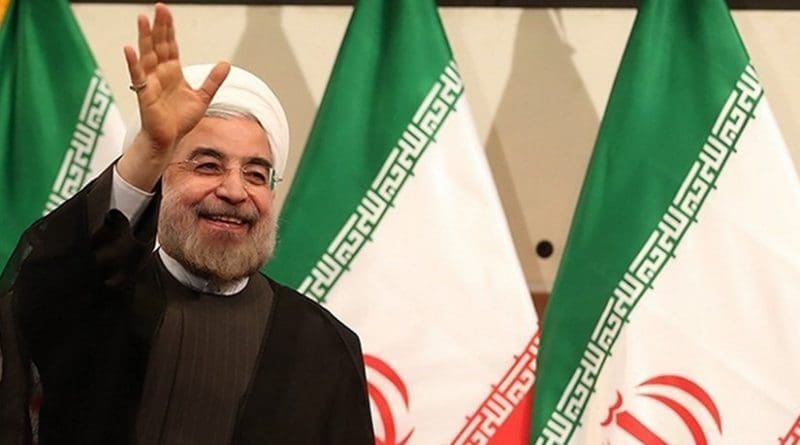Is Rouhani’s ‘Barjam’ Failing? – OpEd
July 2017 witnessed the intensified extension of US sanctions on Iran. Many debates in the US have been around the subject of security summarized in the Middle East, to which Russia and North Korea have also been added. However, the kingbolt of the US’ Middle East discussions has been Iran and organizations against or adherent with Iran. The discussions feed mainly on Iran’s support of terrorism, human rights situation, missile activities, American prisoners, etc. Therefore, Iran has been on top of the list for Donald Trump’s government.
Following Donald Trump’s Travel Ban, untitled threats and statements on regime change before Iran’s 40th anniversary, sanctions against Iran intensified and extended in the aftermath of Rouhani’s Barjam (Iran Nuclear Deal).
In these proceedings there seem to be some unusual points. First, why was North Korea added to the sanctions bill? Second, the number of Democrats and Republicans was 419 to 3 and even in the Senate, it was 98 to 2 in favor of passing the sanctions bill, which is very similar to ideological states’ governments. Third, the issue of Russian sanctions required some kind of supervision, as interests of European states in economic relationship with Russia were not taken into consideration. In other words, the sanctions against Russia was so significant that it required supervision because it is going to affect US allies in Europe directly.
Two aspects can be noticed in this case. First is the economic aspect: using the Gulf states, especially Saudi Arabia as a “cash cow” on one side and efforts over pleasing Israel on the other side can explain Donald Trump’s recent statements on Iran. However, regime change at this specific time considering the 38-year old history of Iran and US relations is rather unacceptable. Bearing in mind the political structure and tradition in the US the ratio of votes in the Senate and the House of Representatives demonstrates an actual vote of “no”. In this concern, by reminding Macfarlane case and claims of Russian interference in US elections in favor of Donald Trump, it is very probable that behind the scenes Republicans and Democrats aim at putting an observatory effect on Trump’s decisions and have used the votes on Iran case for this purpose.
With these developments, Iran’s biggest foreign gas contract with French TOTAL has been realized, despite the fact that the late sanctions were expected to hit European countries. In addition, after Trump signed the sanctions bill, Iran and Russia are preparing to sign billion-dollar contracts, which are going to be the biggest contracts between the two countries in the last decade.
As the US Senate and House of Representatives and the Iranian Sepah have used the sanctions bill to impose more control over their domestic issues, the consequences of these endeavors in both countries’ foreign policy is going to be claims of Barjam’s failure, therefore weakening and making vulnerable reformists such as Rouhani in Iran and the economic-political seclusion for the US. For these developments, Russia seems to owe special thanks to the efforts of the Trump administration and the Iranian Sepah. Therefore, it is predicted that recent developments are somehow leading to an era of isolation of American Foreign Policy and economic-political crisis for Iran. In addition, an oil transportation crisis is very probable in the Gulf region, even if it is a theater again for domestic purposes in both states.
In sum, the natural outcome of the recent US bill against Iran and Russia is that Russian oil exports to Europe are going to be significantly difficult and with the most trivial security issue in the Persian Gulf, Gulf oil exports will also decrease considerably. As a result, the states affected by this bill both as a buyer and as a seller will most probably gather around Russia, which in turn will drive US foreign policy to a period of insularity.
*Sahar Nejati Karimabad, PhD candidate in Area Studies at Middle East Technical University

